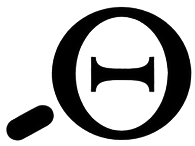OVERVIEW
The March 23 Movement, known as M23, is an armed group operating in the DRC. Its goal is to overthrow the government in Kinshasa. Created in 2012, it was disarmed in 2013 following peace agreements with the government, before being reactivated in 2021. The M23 is led by Sultani Makenga (military activities) and Bertrand Bisimwa (political activities).
In 2023, it joined an anti-government coalition, the Alliance Fleuve Congo (AFC), led by Corneille Nangaa.
The M23, which is believed to have at least 8,000 fighters (in 2025), operates mainly in the regions of Ituri, North Kivu, and South Kivu, located in the east of the DRC. It presents itself as the defender of people from the Tutsi ethnic group and accuses the government of failing to respect the 2013 peace agreements. It is accused of committing numerous international crimes, including murder, sexual crimes, kidnapping, recruitment of minors, and forced displacement of civilian populations.
Financial resources come largely from the exploitation of the abundant natural resources in its area of control (gold, copper, coltan mines, etc.), as well as from the taxation of local populations.
The M23’s military capabilities are limited to light infantry. However, it has equipment that, for an armed group, can be considered fairly advanced (drones, jamming systems, individual ballistic protection, etc.).
Rwanda, and to a lesser extent Uganda, are accused of supporting the M23, which both States deny. According to the United Nations, Rwanda is providing the armed group with weapons, intelligence, training for combatants, and direct logistical and operational support.
Read the full context note here (in French) :

